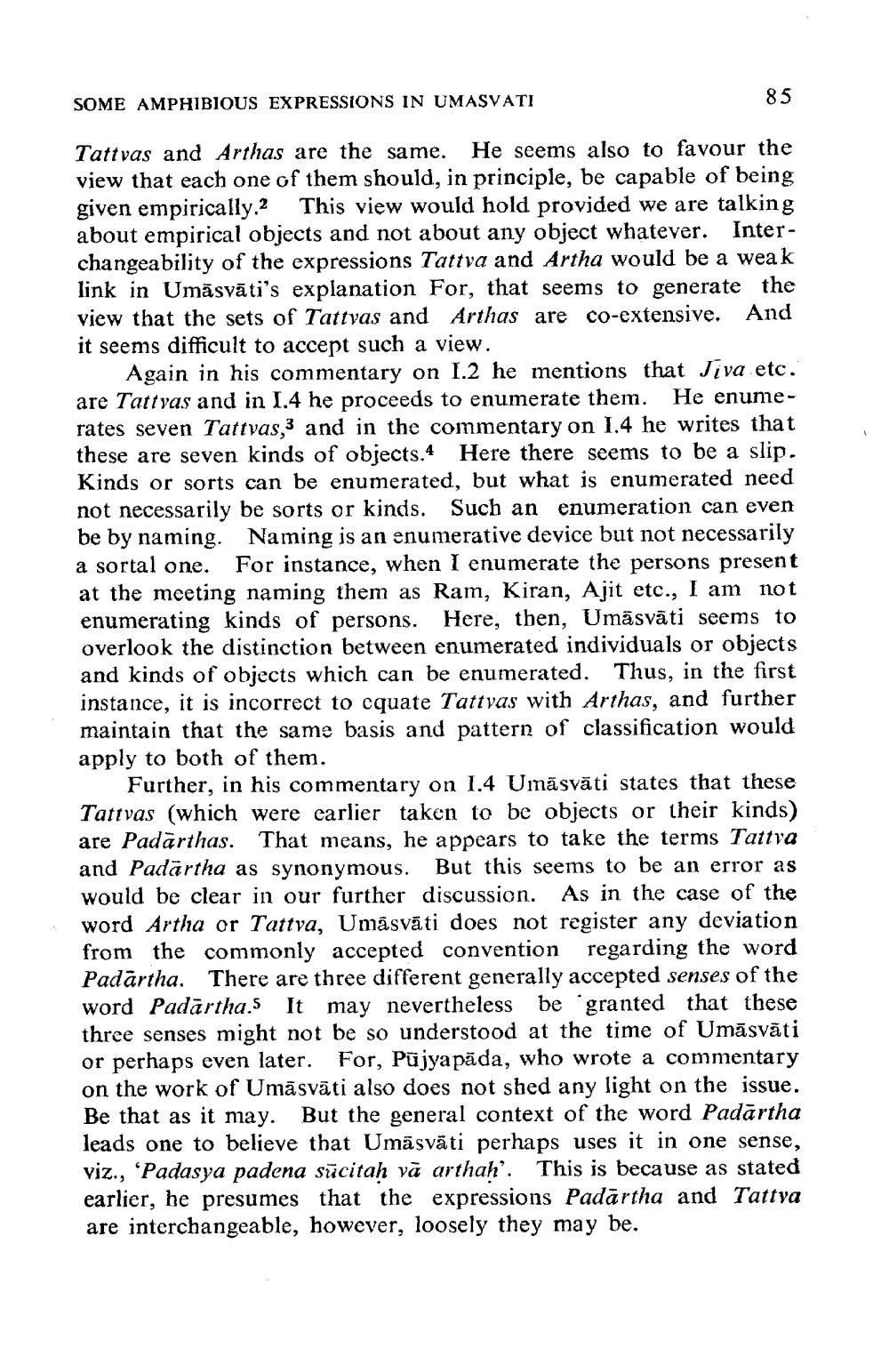________________
SOME AMPHIBIOUS EXPRESSIONS IN UMASVATI
85
Tattvas and Arthas are the same. He seems also to favour the view that each one of them should, in principle, be capable of being given empirically,2 This view would hold provided we are talkir about empirical objects and not about any object whatever. Interchangeability of the expressions Tattva and Artha would be a weak link in Umāsvāti's explanation For, that seems to generate the view that the sets of Tattvas and Arthas are co-extensive. And it seems difficult to accept such a view.
Again in his commentary on 1.2 he mentions that Jiva etc. are Tattyas and in 1.4 he proceeds to enumerate them. He enumerates seven Tattvas,3 and in the commentary on 1.4 he writes that these are seven kinds of objects. Here there seems to be a slip. Kinds or sorts can be enumerated, but what is enumerated need not necessarily be sorts or kinds. Such an enumeration can even be by naming. Naming is an enumerative device but not necessarily a sortal one. For instance, when I enumerate the persons present at the meeting naming them as Ram, Kiran, Ajit etc., I am not enumerating kinds of persons. Here, then, Umāsvāti seems to overlook the distinction between enumerated individuals or objects and kinds of objects which can be enumerated. Thus, in the first instance, it is incorrect to cquate Tattvas with Arthas, and further maintain that the same basis and pattern of classification would apply to both of them.
Further, in his commentary on 1.4 Umāsvāti states that these Tattvas (which were earlier taken to be objects or their kinds) are Padarthas. That means, he appears to take the terms Tattva and Padartha as synonymous. But this seems to be an error as would be clear in our further discussion. As in the case of the word Artha or Tattva, Umãsvāti does not register any deviation from the commonly accepted convention regarding the word Padārtha. There are three different generally accepted senses of the word Padārtha. It may nevertheless be granted that these three senses might not be so understood at the time of Umāsvāti or perhaps even later. For, Pujyapāda, who wrote a commer on the work of Umāsvāti also does not shed any light on the issue. Be that as it may. But the general context of the word Padārtha leads one to believe that Umäsväti perhaps uses it in one sense, viz., 'Padasya padena sūcitah vă arthah'. This is because as stated earlier, he presumes that the expressions Padārtha and Tattva are interchangeable, however, loosely they may be.




